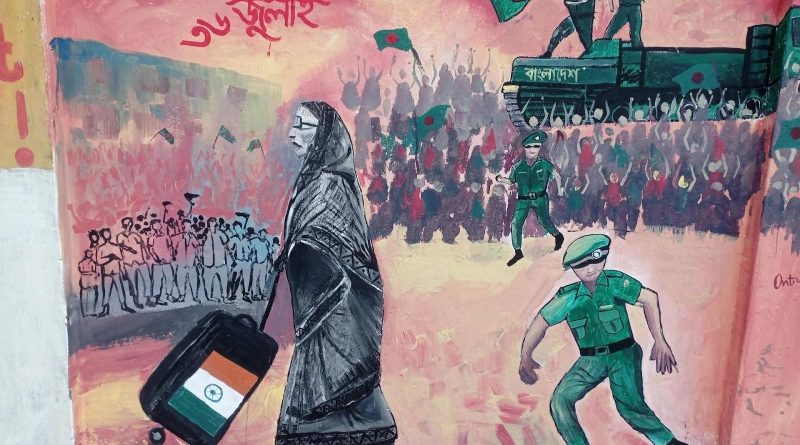Write a letter to your friend about women’s Role in July Uprising 2024
Write a letter to your friend about women’s Role in July Uprising 2024
Date: 14 September 2025
Place: Dhaka
My dear [Friend’s Name],
I hope you are well by the grace of Almighty Allah. I am also fine. Today I am going to share with you something very important about the role of women in the July Uprising 2024 in Bangladesh.
You know, the July Uprising 2024 was a historical movement of our country against injustice and oppression. In this uprising, women played a very remarkable and courageous role. They came out of their homes and joined the movement shoulder to shoulder with men. Many female students protested on the streets, raised their voices for justice, and organized rallies. Women leaders inspired others with their speeches, and even mothers and sisters gave support by providing food, treatment, and shelter to the protesters.
Their bravery and sacrifice showed that women are not only homemakers but also strong fighters for truth and justice. The whole world witnessed their courage, and their contribution made the uprising stronger and more successful. Truly, women proved that they are the backbone of any social and political change.
No more today. Write me soon about your opinion on this matter.
With love,
Your loving friend,
[Your Name]
or,
Dhanmondi 15/A, Dhaka-1205
September 15, 2025
Hey [Friend’s Name],
I hope you’re doing well. I’ve been thinking a lot about recent events in Bangladesh — especially the July Uprising of 2024 — and I wanted to share with you some reflections, particularly on how women played a part. Their contributions were huge, inspiring, and also complicated. I want to tell you what I found and how it moved me. Feel free to tell me what you think too.
It was a massive student-led protest that spilled over into broader public participation, triggered by injustices, economic grievances, demand for rights, and dissatisfaction with government policies. Over time this uprising had real political consequences.
Women, particularly female students from high schools and universities, joined the protests in large numbers. Some formed organizing groups. There were women who not just marched, but organized, led, and strategized. They played roles in mobilizing fellow students and community members, organizing press conferences, coordinating protests, and maintaining communication especially when male counterparts were arrested. Some women stood between male protesters and violent repression, shielding others, motivating people to continue even under fear.
Unfortunately, as visibility rose, so did the backlash. Women protesters experienced gender-based violence — physical and verbal abuse, sexualized insults, groping, threats. Such abusive tactics seem to have been used deliberately to intimidate them, deter participation, and reinforce patriarchal norms. The United Nations’ reports pointed out that this violence was not incidental but often gender targeted.
The bravery of women in this uprising was acknowledged domestically and internationally. For example, the U.S. State Department awarded several of the female leaders the International Women of Courage Award.
What strikes me is how the July Uprising wasn’t just another political protest: it became a moment when many women crossed personal limits of fear, silencing, and social expectations. They didn’t just support — many led. I’d love to hear how you see this — especially how people close to us (in our community or school) viewed women’s role in that time. Did people talk about it at home? Did it change things for you or for others you know?
Take care,
[Your Name]

